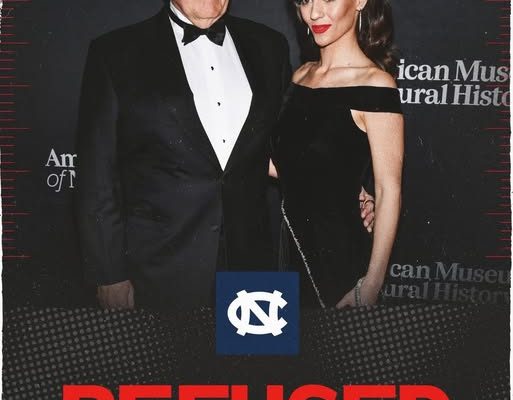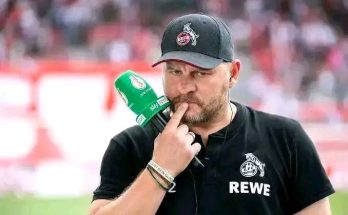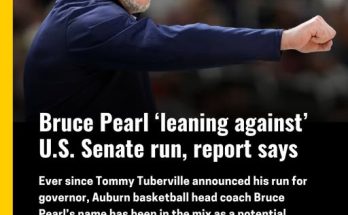When it comes to legendary figures in the NFL, few names carry the weight of Bill Belichick. His coaching resume with the New England Patriots has made him synonymous with a culture of discipline, preparation, and winning. Yet, despite all his accolades and influence on the game, Belichick has recently found himself in the headlines for something that has nothing to do with X’s and O’s, draft picks, or game strategy. Instead, it centers on intellectual property, trademarks, and the idea of how words and phrases connected to one of football’s greatest minds are managed, owned, and protected. According to a report from ESPN, the U.S. Patent and Trademark Office has denied four trademark applications tied to Belichick and Jordon Hudson, his girlfriend, because the rights reportedly already belong to the New England Patriots organization. The applications in question included the phrases “Do Your Job (Bill’s Version),” “Ignore the Noise (Bill’s Version),” “The Belestrator (Bill’s Version),” and “No Days Off (Bill’s Version).” Each of these phrases has become ingrained in the lexicon of Patriots football and part of the public identity of Belichick’s coaching philosophy. However, the denied applications raise important questions about ownership, branding, and the fine line between personal legacy and organizational property.
The story is fascinating because it brings to light just how valuable words and slogans can be in the sports world. Belichick’s stoic demeanor and minimalist style over the years have given rise to phrases that, in many ways, symbolize the Patriots dynasty. “Do Your Job” became a rallying cry for teams and fans alike, embodying Belichick’s philosophy that every player should focus on their individual responsibilities without worrying about the broader picture. “Ignore the Noise” reflected his disdain for outside distractions, a constant theme throughout his coaching career. “The Belestrator” has long been tied to his ability to break down film in a meticulous way that shows why he is considered a genius of the game. And “No Days Off” became a mantra not just for football, but also for fans who admired his work ethic and relentless pursuit of improvement. These phrases are more than words—they are part of the culture and mythology surrounding both Belichick and the Patriots. That makes the rejection of these trademark applications so intriguing. On one hand, it is easy to see why the Patriots organization would want to protect phrases that have been marketed and associated with their brand for years. On the other hand, one could argue that without Belichick himself, those phrases would never have carried the same meaning or significance. It brings up the classic debate about whether legacies belong to individuals or the institutions that benefit from them.
The mention of “Bill’s Version” in each of the attempted trademarks also adds another layer of intrigue. It is reminiscent of the way artists in the music industry, such as Taylor Swift, have reclaimed their work by releasing “Taylor’s Version” of songs. The idea seems to be that Belichick and Hudson wanted to carve out a personal ownership space around phrases that have long been connected to him. Perhaps the hope was to market merchandise, books, or other ventures that could allow Belichick to monetize aspects of his coaching career in retirement, or even while still active. The phrase “Bill’s Version” suggests an attempt at personal branding, separating his legacy from the Patriots’ corporate umbrella. But here is where things get tricky. The Patriots, as an organization, have already secured the rights to these slogans. They have used them in marketing campaigns, merchandise, and promotional materials. From a legal standpoint, the U.S. Patent and Trademark Office recognizes those prior registrations and therefore rejected the newer applications. It’s a reminder that in sports, much like in entertainment, personal legacies often get entangled with the business and legal structures of the organizations behind them.
What makes this entire episode more compelling is the fact that Belichick himself has never been a coach who seemed overly concerned with personal branding. Throughout his career, he has shunned the spotlight, rarely endorsing products or engaging in activities that would commercialize his persona. His press conferences are notorious for their brevity and lack of soundbites. So the idea of attaching “Bill’s Version” to catchphrases and trying to secure trademarks feels somewhat out of character, which naturally raises questions about Hudson’s involvement in the applications. Was this her idea as part of a broader plan to help Belichick build a marketable brand in this next stage of his career? Or was Belichick himself more involved in the process than people might assume? That speculation only adds fuel to the story and makes it more intriguing for fans and observers of the NFL.
Another important dimension is the broader context of how intellectual property shapes sports culture. We often think of athletes and coaches in terms of their performances on the field, but increasingly, the off-field branding and control of names, images, and phrases play just as important a role in defining legacies. Players trademark nicknames, slogans, and even gestures, while teams secure ownership over everything from logos to phrases chanted by fans. The intersection of law, business, and identity is becoming more pronounced, and Belichick’s rejected applications highlight just how complex and sometimes contentious this space can be. Consider the irony here: Belichick, who has spent a career drilling home the idea of “team first” and avoiding distractions, is now part of a story about individual ownership versus organizational control. It highlights the tension that can exist when personal contributions to a dynasty become inseparable from the franchise itself. Without Belichick, there is no six-time Super Bowl Patriots dynasty. Yet without the Patriots’ platform, would Belichick’s slogans have ever become iconic in the first place? It is a classic chicken-and-egg dilemma, and the U.S. Patent Office’s decision to side with the team underscores how institutions often have the upper hand in these matters.
This story also resonates with fans because it forces them to reflect on who really “owns” sports culture. Is it the team owners and corporations who trademark and monetize every aspect of the game? Is it the coaches and players whose work creates those moments and phrases in the first place? Or is it the fans who chant, repeat, and immortalize those slogans in ways that extend far beyond the stadium? The denial of these applications reminds us that while fans may feel emotional ownership of phrases like “Do Your Job,” the legal and financial ownership lies elsewhere. That disconnect can feel jarring, especially when it involves a figure like Belichick, who has meant so much to the game.
For Belichick himself, the rejection of these trademarks probably doesn’t change much about his legacy. His place in NFL history is secure, and he is already considered by many to be the greatest coach of all time. But the fact that he and Hudson sought to secure these phrases indicates that there may be plans for how to shape and control his story going forward. Retirement eventually comes for everyone, and coaches often move into broadcasting, writing, or other ventures. Perhaps Belichick envisions using his philosophies and catchphrases in books, seminars, or media projects where “Bill’s Version” could distinguish his personal reflections from the broader Patriots narrative. Even if these particular applications were denied, the attempt shows a desire to frame his legacy in a very intentional way.
There’s also the possibility that this story could influence how other coaches and athletes think about their own legacies. If someone as accomplished and powerful as Belichick cannot secure the rights to phrases so closely associated with him, what does that mean for others in the sports world? It may push more individuals to think proactively about intellectual property earlier in their careers, securing trademarks and building personal brands before teams can claim them. The business of sports is evolving rapidly, and stories like this are part of that shift.
At the end of the day, this story is about more than just denied paperwork. It is about the intersection of sports, law, business, and legacy. It forces us to think about who gets to tell the story of greatness, who profits from it, and how those stories are preserved for future generations. Belichick may have been denied these particular trademarks, but the conversations sparked by this case highlight how valuable his words and ideas have become beyond the football field. Whether or not “Bill’s Version” ever becomes a legal reality, the attempt itself shows that even for someone as seemingly indifferent to branding as Belichick, legacy matters—and controlling that legacy in the modern world often comes down to more than just wins and losses.
So what do you think about this? Should Belichick have been granted the rights to these phrases since they are so clearly associated with him personally, or is the U.S. Patent Office right to protect the Patriots’ existing trademarks? Do you see this as a business decision that makes sense, or as another example of how organizations hold too much power over the individuals who helped build their success? And what do you think “Bill’s Version” could have looked like if these trademarks had been approved? Would you have bought merchandise or followed projects tied directly to Belichick’s personal brand? I’d love to hear your thoughts and get a conversation going on this, because this isn’t just a legal issue—it’s a cultural one that touches on how we view ownership, legacy, and the future of sports storytelling. Drop your perspective in the comments and let’s debate it, because the implications here go far beyond just the Patriots and Belichick.



